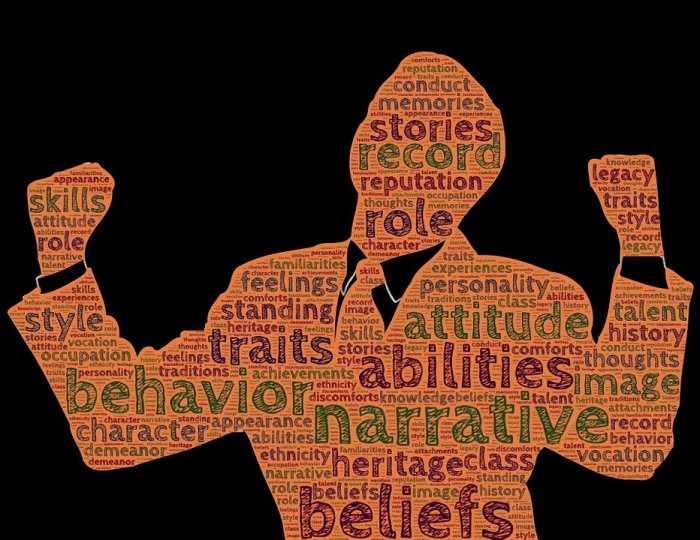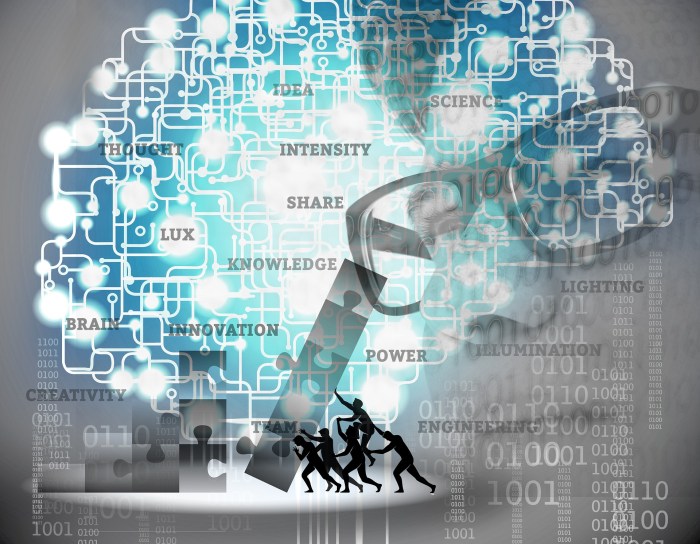
The TV drama The Assassination Of Gianni Versace: American Crime Story, which first aired in 2017, is one of the most notable TV series I have watched in the last five years. Although spanning over nine episodes, there is only one episode in this series, which truly stands out. Episode 8 entitled Creator/Destroyer is probably the most riveting and powerful one hour of television I have ever watched.
I was just 14 at the time, but I remember very clearly the day when the iconic Italian fashion designer was murdered. One would think, judging by the title of the series, that the series would focus on Versace. In fact, it puts the spotlight more on his killer Andrew Cunanan played by the actor Darren Criss. Much of the series follows Cunanan as he prays on his victims and murders them in the most shocking ways. Yet the jam in the donut of this series only arrives at the penultimate episode.
The Creator/Destroyer episode is about the early lives of both Versace and Cunanan and how they took vastly different turns. In the case of Versace, we see him grow up in a poor town in Calabria, yet he is brought up by a loving mother who recognises his talents early on and encourages him to develop them. Yet she is also very wise stressing that in order to achieve success he will have to work hard. At times it won’t be easy, but that’s ok if you are doing something you love and are passionate about.
The early life of Andrew Cunanan could not be more different. The figure who has the most influence on his early development is his Filipino father Modesto who is played by the actor Jon Jon Briones. Unlike Gianni’s mother, Modesto is an extremely deceitful and delusional individual with no moral compass. Throughout his childhood, Modesto never ceases to remind his child that he is special and that by merely believing that he is special he will be able to achieve anything he wants. He is never instilled with any grounded or true wisdom. Witnessing this had a profound effect on me as it signalled to me that any child who is exposed to such falsehoods or delusions of grandeur from an early age is doomed. They will soon find life incredibly frustrating and unfair with potentially tragic consequences.
Furthermore, Andrew is spoiled rotten by his father. In this episode we see him treated like royalty. His siblings refer to him as Prince Andrew. When the Cunanan family move to a larger home when Andrew is around 10 or 11, Andrew is immediately assigned the master bedroom. In this particular clip, we see the rest of the family, Andrew’s mother and siblings, look exhausted as they move sofas and other bits of heavy furniture. Andrew, however, doesn’t lift a finger.
Modesto buys Andrew a sports car even though he is too young to drive it. Andrew’s eldest sibling Chris is old enough, but Modesto denies him this privilege and gives it instead to Andrew even though it will be a few years before he is legally old enough to drive it. When Andrew’s mother challenges Modesto on this, he violently pushes her to the ground. It becomes increasingly clear that Modesto has an unhealthy obsession with his youngest child and favours him over his other children, which creates a rift and a lot of tension.
One of the clearest contrasts between Gianni’s mother and Modesto, is when Modesto is with Andrew in his room teaching him the codes of social conduct from a book by Amy Vanderbilt entitled The Complete Book of Etiquette. Whereas Gianni’s mother brings out the best in Gianni’s creativity, Modesto discourages it from his youngest son. When Andrew tells Modesto that he would like to be a writer, Modesto instantly dismisses it and says that unless someone offered him a lot of money to write a book, he should forget about it. Interestingly, in another episode and one of the few occasions where Andrew meets Gianni, Gianni encourages Andrew to write his book and tells him how aspiring for success just for the sake of success is a futile and hollow endeavour.
In Modesto’s world, nurturing superficiality such as how one looks, what one says, how one behaves, is of more importance than nurturing talent or aspiring to any notions of truth and beauty. From this, one can make comparisons with the character Willy Loman from the Arthur Miller play Death Of A Salesman. Like Modesto, Loman is also a person drowning in his own delusions valuing etiquette, presentation and current social mores over developing talent and instilling healthy values in his children. Being a ‘social success’ is what reigns supreme in the world of Modesto and Willy. As Loman says to one of his sons, ‘Be well liked and you will never want’ as if by being well liked great wealth and status will automatically follow. By that same token, Modesto relentlessly conveys to Andrew, ‘to remember that you’re special, and when you feel special, success will follow’.
Via the infectious influence of Modesto on his life, Andrew is already displaying signs of brattish and entitled behaviour from an early age. In one clip when he opens the door to the postman, he snatches the mail from his hand and duly slams the door on him rather than offering as much as a ‘hello’, ‘thank you’ and ‘goodbye’. In another clip, a young Andrew is in his room reading a book by an electric fan. When he leaves the room, he forgets to turn off the fan.
Andrew’s behaviour manifests itself into abnormally high levels of self confidence by the time he’s a late teenager. By this point, he is driving his sports car and wearing high end designer clothes. He is already a shining example of all the Amy Vanderbilt etiquette drummed into him every evening by his father. He looks and feels invincible and many of his high school peers are in awe of him even if its all merely a façade.
Yet things soon take a turn when Modesto unexpectedly flees the country for Manila. Just a few years earlier, he managed to hustle his way into a stockbroker job at Merrill Lynch beating over 500 applicants. Despite not having the conventional academic qualifications or any previous work experience in the financial services sector, Modesto goes into turbo charge mode with the Vanderbilt playbook in the interview stage weaving a powerful story and promising to ‘cross oceans’ and create unimaginable levels of growth for the company. His patter works. Yet with his lack of financial experience cracks occur. He makes dubious trades, engages in fraudulent activity, and, in one case, swindles an elderly lady out of all her savings. In an attempt to reduce his chances of getting caught, he frequently changes firms. With each change, he opts to work for a firm lower down in the ranks from the last. It is deliciously ironic how someone who gives a lot of weight to status and prestige, decides to demote themselves in such a way.
Modesto’s luck soon runs out when the FBI are called into the firm he is currently working for to arrest him. When he is tipped off about their arrival by his secretary, he immediately tries to destroy all the evidence of any dodgy trades and proceeds to call his travel agent to confirm his same day flight to Manilla. An epic chase ensues. On the way he crosses path with Andrew in his sports car who is oblivious to what is going on. Modesto gets into Andrew’s car and drives off to the airport. When Andrew gets home, he finds his mum distraught. In her despair, she tells him that Modesto has fled ‘like a rat’ back to Manilla and left them with no money. What’s more, their home will be repossessed in the coming days. Andrew, though, doesn’t believe any of this and is indignant that his mother is wrong about his father. He also refuses to believe that his father could leave them with no money. Such a notion is simply inconceivable in his world.
Andrew travels to Manila to try and track his father down. When he does finally arrive at his father’s residence located in a down at heel area in the deep outskirts of Manilla, he is shocked to discover how his father, whom he always looked up to, could live in such an impoverished and threadbare dwelling. Afterall, wasn’t his father supposed to be this high-flying stockbroker whom he boasted about to all his friends? Instead he meets his father in a basic room in a rickety old wooden house – the kind of room that a seasoned backpacker on an ultra-tight budget would shell out $3 a night for – where he greets his son and serves him a plate of chicharron or pork skins. Andrew is clearly shocked but continues to tread carefully with his father only meekly asking him if there is any money. His father, acting like a bent second-hand car salesman, tells him there are ‘millions’ yet is vague regarding the whereabouts of this money.
It is only during the middle of the night, when Andrew is unable to sleep, that he wakes up his father and broaches the money issue with him again. When his father admits that there is no money the ice finally breaks. For the first time in his life, Andrew properly confronts his father. The floodgates open: ‘My father is a liar and a thief’ ‘You were everything to me dad but it’s a lie and I can’t be a lie’.
This scene is reminiscent of the scene in Apocalypse Now with Marlon Brando where he quotes T.S Eliot’s poem The Hollow Men. It is Oscar winning material. This particular scene is akin to an initiation or the end of innocence. Adam and Eve thrown out of the garden of Eden. The end of a prolonged smoky dream. For the first time, the wool is removed from Andrew’s eyes revealing the real Modesto and not the distorted and artificial version of him he grew up with. Where once Modesto would put him on the highest of pedestals, this time he throws his own son under a bus with taunts calling him ‘weak, just like your mother’, ‘my special sissy boy’ or a ‘sissy kid with a sissy mind’. Modesto has been challenged and he doesn’t like it. Yet Andrew has finally seen the light regarding his relationship with his father and vows to never be like him.
When Andrew returns from the Philippines to the family home, which is already in the process of being repossessed, he flies into a blind rage grabbing the Amy Vanderbilt book his father used to read to him every evening, and starts ripping all the pages out of the book to shreds. What is interesting is that this moment in his life now marks a turning point, which can go either way. This is highlighted whilst he is applying for a job in a local convenience store. Everything is going fine until the owner asks him what his father does? Instead of telling the truth and being cordial with the owner, he embellishes a fantastical story about how his father is an owner of multiple plantations in the Philippines ‘further than the eye can see’. It is clear from now on that rather from vowing never to be like his father, he is prepared to inherit his traits by dealing in the currencies of lies and deception. He had an opportunity to turn his life around but decided not to.
This episode is a masterclass of human psychology. I often wonder how different Andrew’s life would have been if he had a parental figure who, like Gianni’s mother, brought him up well. How different things would have been. Yet one can equally speculate with Gianni how he would have turned out had he been brought up by a Modesto father figure who would have knocked out of him any creative inhibitions.
Another interesting point to note is the growth of reality TV and social media stars in the years since both Versace and Cunanan died in 1997. The reason I make this point is because many of these reality TV and social media stars are famous just for the sake of being famous. There’s a rampant narcissism, entitlement, insecurity and perpetual feeling of lack that drives them. These are exactly the traits that Andrew demonstrated and I sometimes wonder had he grown up in the age of the internet, reality TV and social media what his chances would have been of being one of those insipid reality TV bores? I think he would have lapped up this vacuous culture and taken it to his bosom.
One of the most apt comparisons one can make between Gianni and Andrew is from the biblical story of Cain and Abel. The quintessential creator and destroyer story. Andrew wanted to be rewarded without having to properly earn it through honest hard work and putting his all into it. Gianni worked hard, tirelessly and diligently, and against all odds was rewarded and became a fashion icon. Andrew was jealous of Gianni. He wanted everything that Gianni had, but without having to endure any struggle or battles to get there. So like Cain he murdered Gianni.
By Nicholas Peart
(c)All Rights Reserved









